
Enroll in one of our online Counseling programs to receive an education in depth psychology and the professional career training to become a:
- Marriage & Family Therapist
- Professional Clinical Counselor**
- Professional Counselor
- Mental Health Counselor
- Psychophysiologist or sports psychologist
The majority of programs in the Department of Counseling are designed to be compatible with requirements that will permit students to achieve licensure* and practice professionally. Saybrook graduates already work as licensed psychologists in many states and Canadian provinces.
*Eligible for licensing in California, Washington, and other states
**Potential to meet other state pre-degree MA licensing requirements
Rooted in humanistic psychology, Saybrook’s Counseling programs study human experience in deeply subjective, historical, contextual, cross-cultural, and spiritual contexts. Each program is designed to promote health and wholeness as practitioners who are positioned to effect positive change through service and leadership in their chosen clinical field.
Our Counseling students and alumni affect lives and systems through clinical practice and scholarship in diverse settings. They are instrumental leaders in working with those who are seeking to deepen the purpose and meaning of their lives; those who are incarcerated or on parole; those struggling with chronic illness and/or substance abuse; emergency first-responders, and returning veterans and their families.
Our accomplished Counseling faculty members are active in both academia and professional practice, with specializations in health psychology and engaging patients in hospital settings, developmental psychology, child & adolescent psychology, multi-cultural psychology, and humanistic-integrative depth psychotherapies. Our faculty offer extensive experience as innovative providers in mental health care and are poised to support clinicians-in-training. We will help you navigate the world of professional development and licensing, while remaining true to a holistic approach to psychology.
Counseling Degree Options
- Seattle (LIOS) Blended Learning Program for licensure in Washington state. This program employs a pedagogy that is grounded in the integration of three core elements: applied behavioral science, systems theory, and experiential learning.
- : A career-focused, clinical program with practicum training, this program prepares you for multiple licenses and empowers you to shape and craft your professional development and practice orientation. Focus on career opportunities while remaining true to your humanistic principles and helping others.
Important Notes About Licensure
Licensure regulations differ from state to state, and students who wish to pursue licensure are strongly advised to contact the licensing board in the state/province in which they plan to practice in order to obtain the detailed requirements. Students should follow the specific requirements of their chosen state or province (i.e., courses, faculty contact hours, internship) in planning and completing their degree program curriculum.
Source: www.saybrook.edu
You might also like:


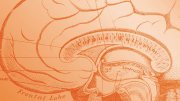
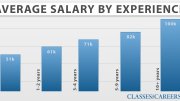
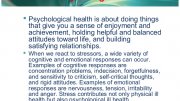


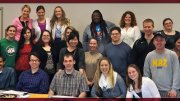

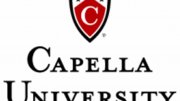







Clinical psychology deals with the study and treatment of mental illnesses. Very broadly, cognitive psychology deals with how the brain perceives and processes things, and social psychology deals with how people behave in various situations -- I am not sure what a "cognitive and social" degree would be, I haven't heard of such a thing.
You can become licensed to be a counselor/therapist in most US states with a Master's in one of the following: Social Work, Counseling Psychology, Clinical Psychology, or Marriage and Family Therapy. So, look up these fields and think about which one mig…
You don't indicate if you are looking for a PhD in Hong Kong or the US.
In general I would say the changes of getting into a PhD program with a 2.5 GPA are very remote. 3.0 is generally considered the minimum and realistically a 3.5 is the true mean.
Now taking a different MA (especially in psychology) and doing well in this (e.g. getting above a 3.5 GPA) would probably help - you don't indicate what your BA GPA was.
If you do this, you should understand WHY you got a 2.5 GPA and what you can do to avoid the same problems in your second MA.
As for a good job - provided you are skill…
You can obtain this information by going to and using the sites College MatchMaker search engine, or click on the related links section below to go directly to the site. You can research colleges and universities by name, or by programs of study, or by geographical location, size, or combinations of all etc. The site will provide you with a list of institutions based on your request. It will give you the schools background, accreditation, degree offerings, programs of study, entrance requirements, tuition and fees, athletic programs etc. and a link to each institutions official web page…
Nursing homes, bot psychiatric and for the elderly are usually a good bet, as they can lead to opportunities to work with practising clinical psychologists and give a reasonable insight intothe world of a clinical psychologist. Your best bet would be to become an assistant to one of course but frankly, its difficult. Good luck, I'll be rooting for you.